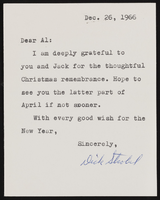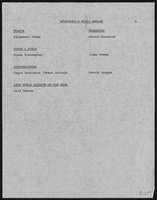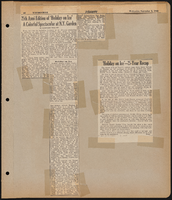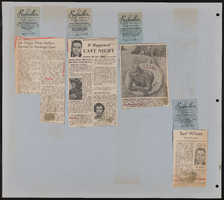Search the Special Collections and Archives Portal
Search Results

Amy Bush Herzer oral history interview: transcript
Date
Archival Collection
Description
Oral history interview with Amy Bush Herzer conducted by Barbara Tabach on November 14, 2019 for the Remembering 1 October Oral History Project. Herzer begins the interview discussing her early life, education, and her current job as the University of Nevada, Las Vegas (UNLV) women's golf coach. She speaks about her family's history with golf, her personal history, and life with her husband, Kendall Herzer. After, she recalls where she was on the day of the October 1 shooting, and how she found out about the event, and recalls her husband reported to the main fire station as an Emergency Manager for the State of Nevada. She recalls keeping track of her athletes' whereabouts and letting their families know. Herzer describes how people reacted when she had brought a therapy dog, Apollo, in for the people donating blood and how the community came together to support each other and share resources as a community.
Text

Transcript of interview with John Wilhelm by Claytee White, August 12, 2014
Date
Archival Collection
Description
Text
Gertrude Toston oral history interview
Identifier
Abstract
Oral history interview with Gertrude Toston conducted by Claytee D. White on July 21, 2006 for the UNLV @ 50 Oral History Project. Toston discusses attending the University of Nevada, Las Vegas (UNLV) in the 1960s. She also discusses working as a customer service representative for Western Airlines for 27 years before going back to UNLV to work on her master's degree in special education. She then talks about working as a graduate teaching assistant and student teacher advisor at UNLV and as a teacher at Brinley Junior High.
Archival Collection
Kathleen Harney oral history interview
Identifier
Abstract
Oral history interview with Kathleen Harney conducted by Claytee White on July 19, 2010 for the Voices of the Historic John S. Park Neighborhood Oral History Project. In her interview Harney discusses her and her husband's move to the historic John S. Park Neighborhood in 1975, about ten years after moving to Las Vegas from Ohio. Kathleen also discusses her career as a high school teacher and teaching English and journalism.
Archival Collection






